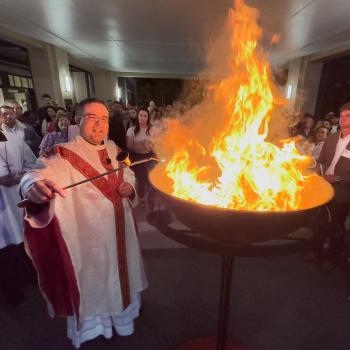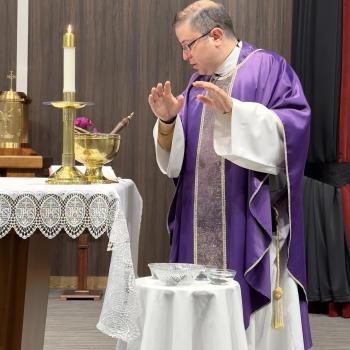Lately the news have brought into our homes disturbing images of death and suffering. On February 15th a video from Libya showing the beheading of twenty-one Egyptian Copts dressed in orange jumpsuits was released. The killers called the men “people of the cross” and swore to conquer Rome. One of the Christian men is heard saying before his beheading, “Jesus, help me.”
Martyrdom is the ultimate manner to be a witness of the faith. In fact, the word martyr comes from the Greek word martus which means “witness.” From the early days of Christianity, the Church considered men and women who died for their faith to have perfectly imitated Christ by losing their lives for the sake of the Gospel. After martyrs, confessors were held in highest esteem, those who had suffered persecution and torture for the faith, but had not been killed. An example is the 7th century Maximus the Confessor who had his tongue chopped off so he would stop teaching the faith.
The Church understands that martyrdom is a grace received, not everyone will have the necessary strength to endure it. During the persecution of Emperor Decius in AD 249 for example, many Christians throughout the Roman Empire died as martyrs, but a considerable number offered sacrifice to the official Roman deities in order to avoid death. Once the persecution ended those who had denied Christ requested reentry into the Church, and the Church authorities did not know how to proceed. Some suggested rebaptism was necessary since they had rejected Christ in such a disgraceful way, while others did not want the lapsed to be readmitted. Confessors especially felt that the lapsed had taken the easy route during the persecution by offering sacrifice while they had persevered in the faith. The bishop of Carthage in Africa, Cyprian, allowed those who had offered sacrifice to be accepted back into the Church as penitents, but they were not officially readmitted into the Church until their death-beds. Priests who had denied Christ were not allowed to resume their former responsibilities.
Saint Thomas Aquinas wrote that the virtue of fortitude enables a person to stand firm against and endure the hardships of life while remaining steadfast in the pursuit of what is good. Fortitude is the virtue by which a person can overcome weakness, resist temptation, and make a sacrifice in order to achieve what is good. Having fortitude does not eliminate fear, but rather, it allows the individual to persevere in doing what is good despite the fear he or she feels. Aquinas wrote that martyrdom is the principle act of fortitude, or the most perfect exercise of this virtue. Martyrdom requires standing firm in truth and justice against persecution despite fear for the greatest good possible, Jesus Christ.
The twenty-one Christians martyred in Libya along with the thousands of men and women who are killed each year throughout the world on account of their faith are perfect examples of fortitude for every Christian. Their witness enlivens the Church reminding all the faithful that it is worth dying for the living Gospel of Jesus Christ. The martyrs have stood firm against the greatest hardship, losing one’s life, and despite their fears, by God’s grace, persevered.
















